We are happy to share that we have revamped the UI and UX of our R Development Environment.
The improved UI provides test-takers with larger area for writing codes and viewing the result along with the console output and plot(s).
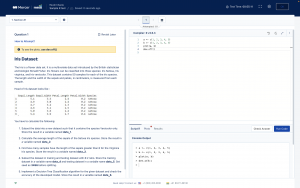
The new UX brings along a walkthrough, highlighting the key components of the interface, such as full-screen view, editor features, and language support (IntelliSense), to assist test-takers in writing faster and more efficient code.
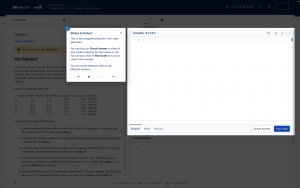
We hope you are as excited as we are to let test-takers experience the all-new interface of our R Development Environment!
Our front-end coding environment now offers options for multiple editor types (VIM and Emacs). Test takers will also be able to toggle between code in a light or dark theme, customise their tab spaces and make use of the word-wrap functionality.
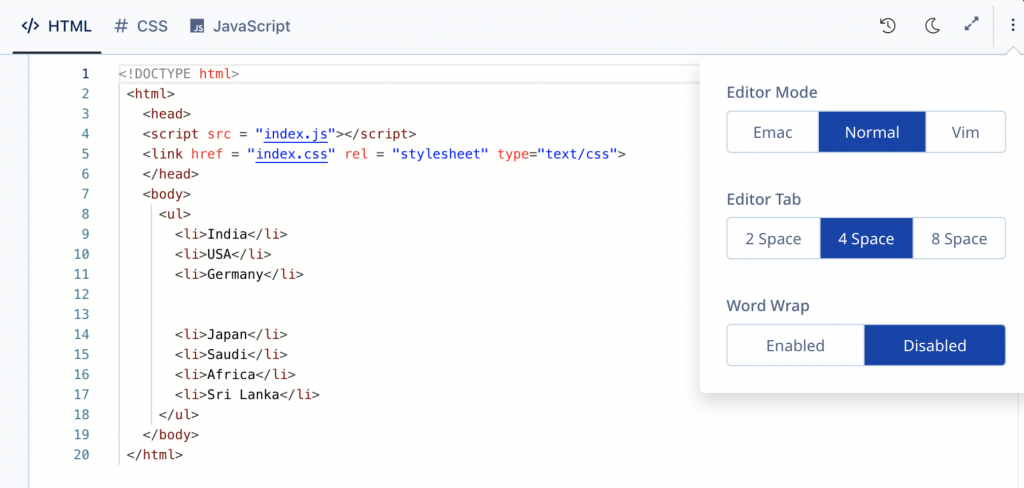
These options will enable test-takers to write, debug, and compile their codes more effectively.
Additionally, test-takers can now choose to disable/enable the functionality to auto-refresh the output of their code basis their preference.

The availability of the IntelliSense or Code Auto-complete is now more distinctly visible in our backend coding environment. Test takers are now notified when IntelliSense has loaded for the language that they have selected.
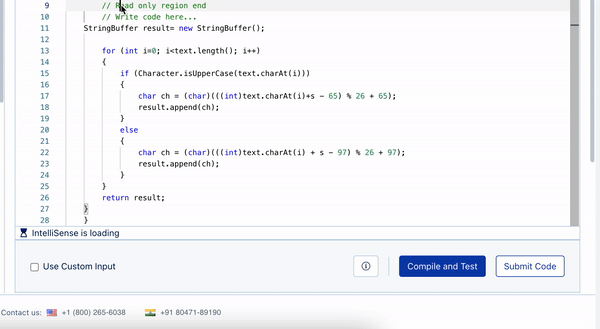
Test-takers are also notified in case the network connection breaks and the system tries to re-connect.
As part of our ongoing efforts to improve usability of our simulators, we are happy to let you know that we have enabled a zoom-in and zoom-out functionality in the View Schema tab of our database environment (DBLysis).
This update will help test-takers take reference from the most complex schema images with utmost ease.
In addition to this functionality, we have also improved the database schema generated in questions for a smoother test-taking experience.
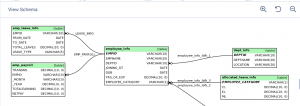
We are happy to inform that the console tab in our frontend coding environment now supports the use of console functions which enables front-end developers to debug their code.
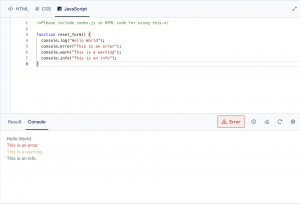
In addition to this update, we have solved for the usage of functions such as alert(), confirm() and prompt() without triggering browser tolerance for assessments where proctoring is enabled.
With this update, test-takers can easily use these functions and have a more seamless and comfortable test-taking experience.

We are happy to announce that we have added support for version 1.7 of Kotlin on our general-purpose backend coding environment (CodeLysis).
This update comes with support for auto-complete and language support (IntelliSense) in Kotlin as well.
Clients will be able to select Kotlin 1.7 while creating or editing questions and test takers will be able to attempt coding questions in Kotlin 1.7 wherever available.
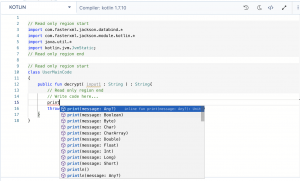
We are happy to announce that we have added support for the latest LTS (Long Term Support) version available for Java i.e., Java 17 on our general-purpose backend coding environment (CodeLysis).
This update comes with support for IntelliSense in Java 17 as well.
Clients will be able to select Java 17 while creating or editing questions and test-takers will be able to attempt coding questions in Java 17 wherever available.
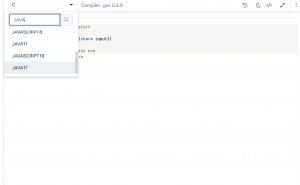
We are excited to announce a much-awaited feature to view the console output for “Run Test Cases” while creating project-based questions (I/O). This feature will allow access to logs and will further improve the overall debugging process involved in writing test cases while creating project-based questions questions.
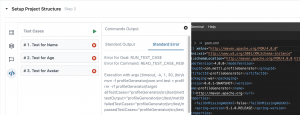
In case there are multiple command sets and/or prerequisite goals, output for each of them will be displayed separately.
Know more
To understand more about Mercer | Mettl’s project-based development environment, click here.
We are thrilled to share that we have revamped the UI and UX of our Front-end Simulator (FES). The improved UI provides test-takers with larger area for writing codes and viewing the output.
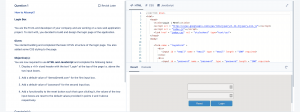
The new UX brings along a walkthrough, highlighting the key components of the interface and features like auto code complete and language support (IntelliSense) to assist test-takers in writing faster and efficient codes.
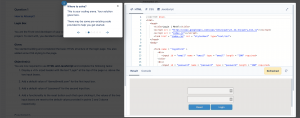
Hope you are as excited as us to let test-takers take a feel of the all-new interface of our front-end coding environment!









 Behavioral Competencies
Behavioral Competencies Cognitive Competencies
Cognitive Competencies Coding Competencies
Coding Competencies Domain Competencies
Domain Competencies
























